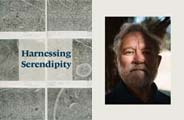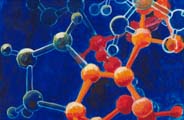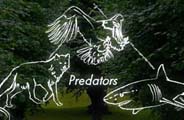
Scientific Discipline
Biochemistry, Chemical Biology, Neuroscience
Host Institution
University of Utah
Current Position
Baldomero Olivera is a Distinguished Professor of Biology at the University of Utah. He is also an Adjunct Professor at the Salk Institute, La Jolla, California and at the Marine Science Institute, University of the Philippines.
Current Research
Science Education in Diverse Cultural Settings: From Chemistry to Biodiversity
Biography
Growing up in the Philippines, Baldomero "Toto" Olivera recalls that cone snails were sold by the kilo in local seafood markets. As a child, however, Olivera was unaware of the impact the predatory cone snail, Conus magus, would have on his life's work. Nor could he have imagined that the creatures would even enable his lab to develop a drug to bring relief to people in chronic pain.
Olivera—nicknamed Toto by a cousin who could not pronounce Totoy, a pet name sometimes given to Filipino boys—is now Distinguished Professor of Biology and a neuroscientist at the University of Utah in Salt Lake City. As an HHMI Professor, he has taken the story of the cone snail back to the children of the Philippines and introduced cone snails to students and the public of Utah. "These snails have so much potential, and the children don't know anything about their biology," he explains.
Olivera will teach children and undergraduates from the Philippines about the richness of their surroundings through a project he calls the Biodiversity-Biomedical Links Initiative. "My idea is to concentrate on the biodiversity that's at their feet," he says. His goal is to interest young students by educating them about scientific principles they can observe in organisms that they see every day.
Olivera recognized that the fish-hunting cone snail, with its intriguing eating habits, is a good place to start. The snail catches its prey by harpooning fish with a radular tooth, a hypodermic needle-like structure that injects a paralyzing venom made up of 100 different components. Once the fish is harpooned and paralyzed, the snail reels it in and eats it. By studying the complex neurotoxic venom made by the snails, Olivera and members of his lab have identified several drug candidates and gained a better understanding of how ion channels work.
Michael McIntosh, now a fellow researcher in psychiatry at the University of Utah, was an undergraduate in Olivera's lab when he discovered a cone snail toxin whose synthetic form is now used to treat pain effectively in patients who have become tolerant to morphine. Olivera believes the future of neuroscience depends on collaboration across disciplines. So he also plans to work to increase the number of students fluent in neuroscience by implementing an Interdisciplinary Undergraduate Neuroscience Program at the University of Utah. Students whose majors range from math to electrical engineering will be offered the opportunity to minor in neuroscience. "If we are to accelerate the pace of scientific progress, we need people looking at the same problems from different intellectual viewpoints," he says.
Articles & News
Research Papers
Selected Research Papers



